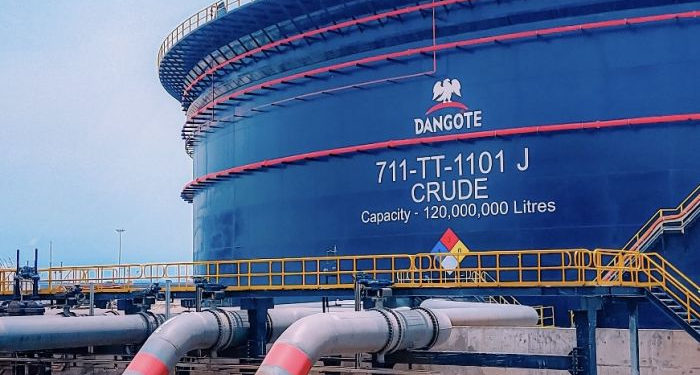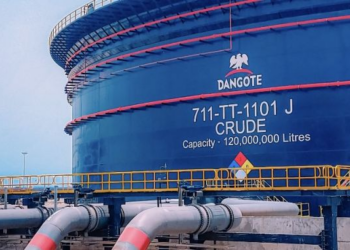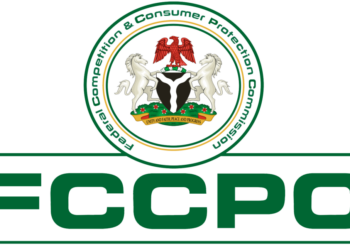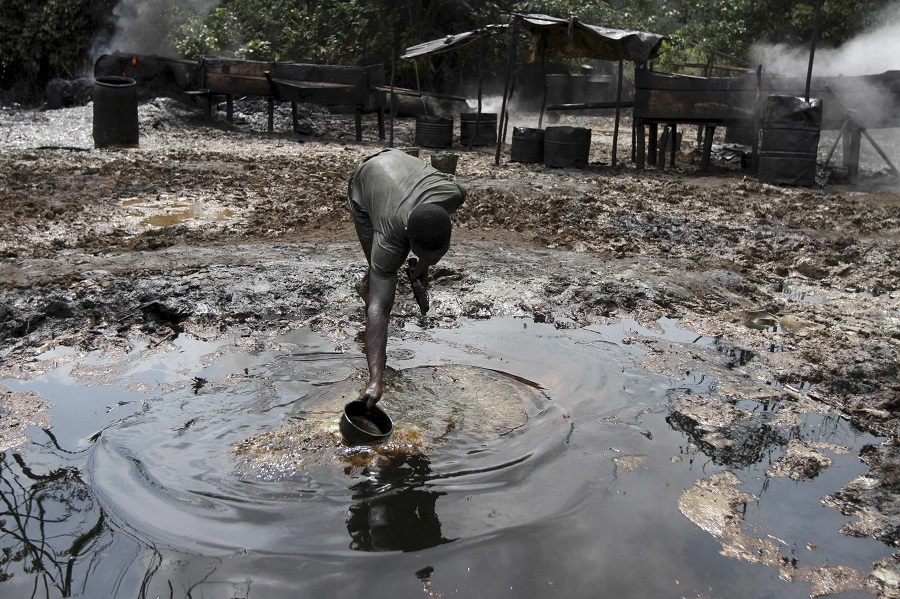The Publicity Secretary of the Crude Oil Refiners Association of Nigeria (CORAN), Eche Idoko, has challenged the continued issuance of licences for the importation of Premium Motor Spirit by the Nigeria Midstream and Downstream Petroleum Regulatory Authority (NMDPRA).
In an exclusive chat with Nairametrics, Idoko disclosed that the Dangote Petroleum Refinery currently has 500 million litres of PMS in stock as of Thursday, February 20.
Nairametrics reported that the Executive Director of Distribution Systems, Storage, and Retailing Infrastructure at the NMDPRA, Ogbugo Ukoha, said Nigeria currently consumes about 50 million litres of PMS daily and that local refineries are unable to meet 50% of this demand.
The senior official of the regulatory agency said it was necessary to grant importation licenses to oil marketers in order to prevent local shortages of petrol.
Idoko challenged the assertion of the NMDPRA official, saying that the Dangote refinery’s available stock alone can conveniently meet local consumption for 10 days, not to mention the various modular refineries in the country.
“I find that submission by NMDPRA rather curious. As we speak, Dangote has in stock 500 million litres of PMS in stock. That’s their production stock for 10 days, and it hasn’t been depleted. You know, I mentioned to you that in December, they were almost having a tank-top situation. So, I don’t understand why there’s a need to give licenses for importation when we have 500 million litres from only one refinery.
“That’s about 940 metric tonnes vessels available for take-up,” he said.
He noted that Dangote’s PMS is confirmed to be cheaper than even that of the Nigeria National Petroleum Company (NNPCL).
He argued that with available cheaper petrol in Nigeria and in line with the local content and backward integration policy in the oil sector, the NMDPRA has no justification to allow the continued importation of PMS at this time.
“Why won’t the marketers or whosoever is importing simply go to Dangote and pick that when we have seen empirically that the Dangote product is cheaper? Because right now, MRS that is getting from Dangote, is selling cheaper than NNPC. So, there’s nothing to justify importation of petroleum products as per the provisions of the PIA and the requirements for backward integration.”
Controversy over importation
There is an ongoing legal battle between the Dangote Petroleum Refinery and Petrochemicals FZE, the Nigerian National Petroleum Company Limited (NNPCL), and the NMDPRA.
- Nairametrics reported that the Dangote Petroleum Refinery and Petrochemicals FZE filed a suit at the Federal High Court in Abuja seeking to void import licenses issued by NMDPRA to NNPCL, Matrix Petroleum Services Limited, A.A. Rano Limited, and four other companies for importing refined petroleum products.
- In suit number FHC/ABJ/CS/1324/2024, Dangote Refinery is seeking N100 billion in damages against NMDPRA for continuing to issue import licenses to NNPCL, Matrix, and other companies to import petroleum products such as Automotive Gas Oil (AGO) and Jet Fuel (aviation turbine fuel) into Nigeria.
- Dangote refinery refines PMS, AGO (diesel), and other petroleum products in excess of what is consumed daily without shortfalls.
The NNPC has denied claims that it is importing refined petroleum products despite the refurbishment of state-owned Port Harcourt and Warri Refineries. However, the NMDPRA has confirmed that it gave licenses to some other oil marketers to import.
The struggles of private petroleum refineries in Nigeria
Some years ago, Nigeria produced well over 2 million barrels of crude oil per day yet lacked substantial refining capacity locally. The country exported its crude oil and imported refined products.
- Now, it boasts of having the world’s largest single-train refinery with a full capacity of refining 650,000 barrels of crude oil per day and multiple modular refineries that refine between 1,000 and 5,000 barrels per day.
- However, Nigeria struggles to meet the crude oil demands of these private refineries, forcing them to import crude oil and subject Nigerians to an unstable exchange rate.
- Nairametrics reported that the crude-for-Naira initiative to make crude oil available to local refineries is marred by inconsistent implementation. As a result, local refineries import crude oil, and when they buy locally, they sometimes buy in Dollars.
- We also reported that the Dangote refinery is importing crude oil from the United States, and it is building new storage facilities to boost feedstock security.
With the continued importation of refined petroleum products and the inability of local refineries to secure feedstock locally with the Naira, experts say this situation has exposed Nigerians to the instability of the global oil market, an abnormal situation for a major oil-producing country.






















